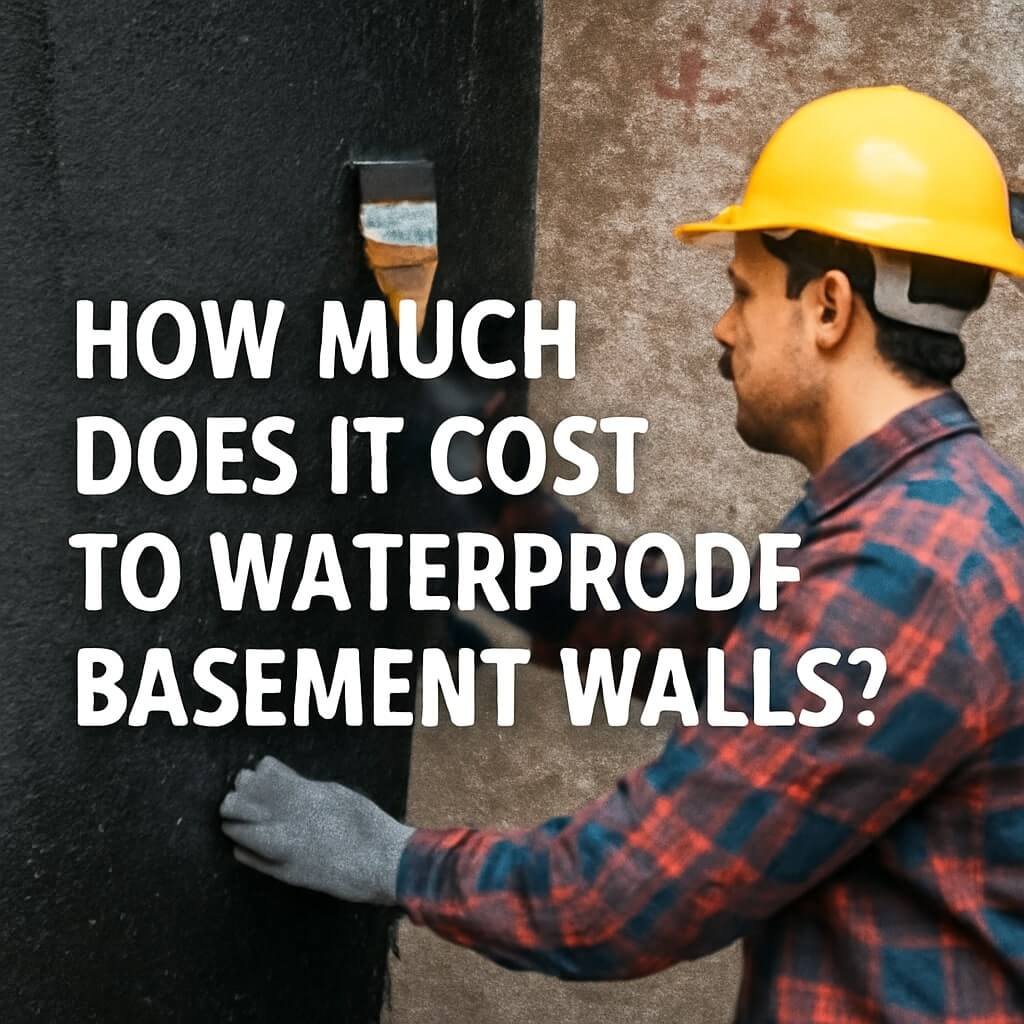Basements are the unseen foundation of your home, literally. When moisture starts sneaking in, it can cause damage that costs you thousands down the line. Understanding your basement waterproofing pricing options is key to protecting your home without breaking the bank. This guide dives deep into everything you need to know about basement waterproofing costs, methods, and considerations.
What Is Basement Waterproofing?

Basement waterproofing is the process of making your basement resistant to water intrusion. This can include sealing cracks, installing drainage systems, and applying waterproof coatings. The goal? Keep your basement dry and your home safe from mould, mildew, and structural damage.
Why Basement Waterproofing Is Essential
Ignoring basement water problems can lead to costly repairs. Waterproofing not only protects your home’s structural integrity but also improves indoor air quality and can increase your property’s value. Plus, it gives you peace of mind during heavy rains or snowmelt seasons.
Common Signs That Your Basement Needs Waterproofing
- Visible cracks in walls or floors
- Damp or musty smells
- Water stains or discolouration
- Mould or mildew growth
- Standing water or puddles after rain
If you notice any of these, it’s time to consider waterproofing.
Factors That Influence Basement Waterproofing Costs
Basement waterproofing costs vary widely depending on several factors. Knowing these can help you plan your budget smartly.
Size and Condition of Your Basement
Larger basements naturally require more materials and labour. Also, older basements with existing damage or poor drainage may need more intensive repairs.
Type of Waterproofing Method
Different waterproofing methods carry different price tags. Exterior excavation and membrane installation, for example, are often pricier than interior sealants or sump pump installation.
Labour and Material Costs
Labour costs fluctuate by region and contractor expertise. Quality materials can increase upfront costs but often pay off with longer durability.
Location and Accessibility
If your basement is difficult to access or has landscaping that must be removed, expect additional costs.
Popular Basement Waterproofing Methods and Their Pricing
Here’s a breakdown of common waterproofing methods and what you can expect to pay:
Interior Waterproofing Systems
- Sealing Cracks and Applying Sealants: $500 – $1,500
- Installing Sump Pumps: $1,000 – $3,000
- Interior Drainage Systems: $5,000 – $10,000
Exterior Waterproofing Systems
- Excavation and Membrane Installation: $10,000 – $20,000+
- French Drains: $4,000 – $8,000
French Drains and Sump Pumps
These work together to channel water away from your foundation and keep the basement dry. Installation prices vary depending on complexity.
DIY vs Professional Basement Waterproofing: Cost Comparison

DIY waterproofing can save money, but it comes with risks if you lack experience. Professional services typically ensure long-lasting results, but at a higher initial cost. Consider your skill level, the basement condition, and warranty options before deciding.
How to Get Accurate Basement Waterproofing Estimates
Get at least three quotes from reputable contractors. Ask for detailed breakdowns to compare prices and methods clearly. Reviews, licenses, and insurance are essential to vetting professionals.
Insurance and Warranty Considerations
Check whether your homeowner’s insurance covers basement waterproofing or damage repairs. Also, inquire about warranties offered by contractors—these can save money long term.
Top Tips to Save Money on Basement Waterproofing
- Fix small leaks immediately
- Maintain gutters and downspouts
- Landscape to divert water away from the foundation
- Schedule waterproofing during the off-season for discounts
- Choose durable materials for fewer future repairs
Frequently Asked Questions (FAQs)
How long does basement waterproofing last?
Will waterproofing increase my home value?
Can I do basement waterproofing myself?
What if my basement is already flooded?
How do I maintain my waterproofed basement?
Are there eco-friendly waterproofing options?
Conclusion: Making the Right Investment for Your Home
Understanding basement waterproofing pricing options empowers you to protect your home wisely. Though costs vary, investing in quality waterproofing safeguards your property’s value and your family’s health. Always weigh methods, get multiple quotes, and choose trusted professionals to ensure a dry, safe basement for years to come.



